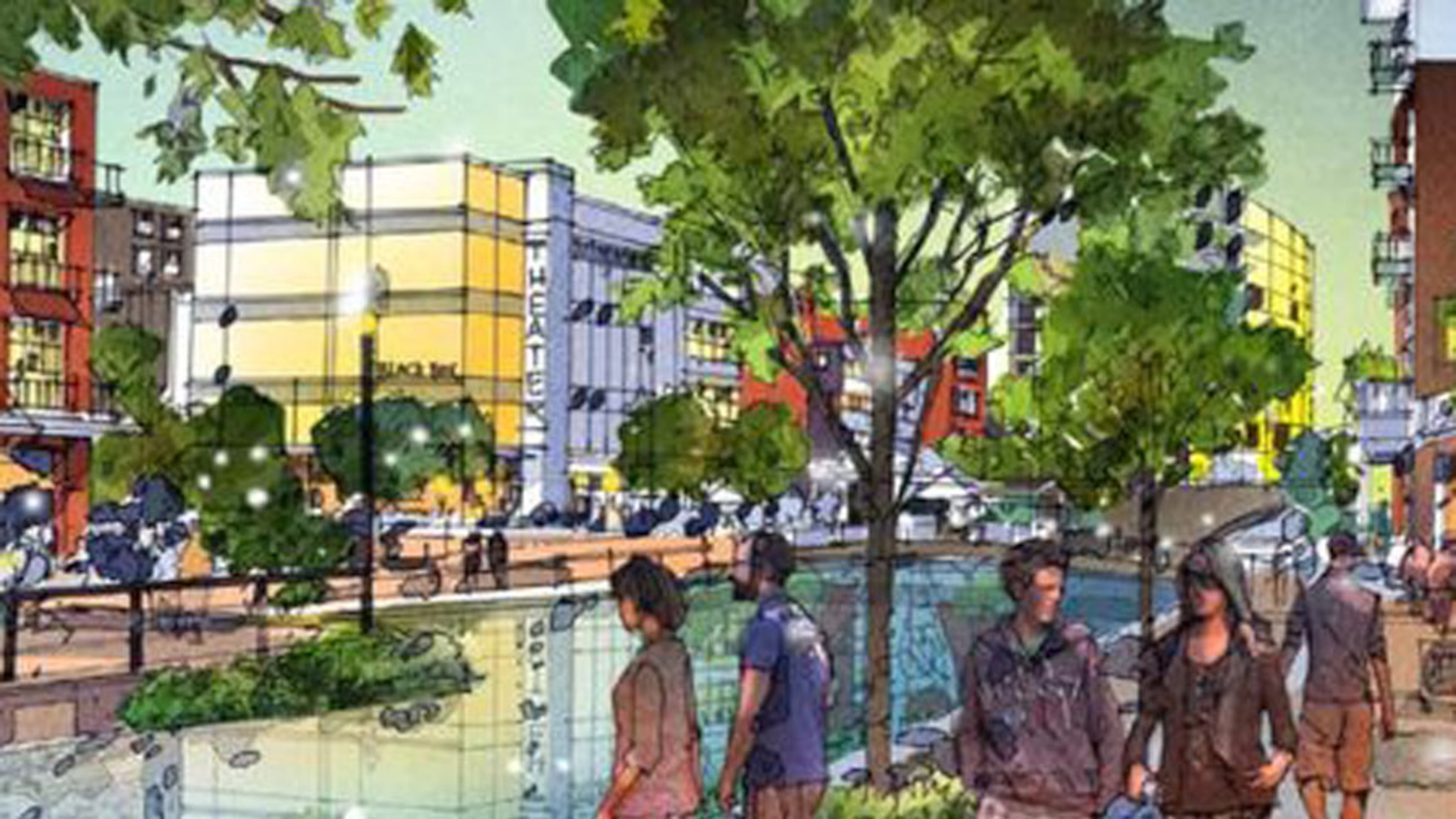Johns Creek may develop massive downtown

Johns Creek will host a town hall meeting on its proposed central business district at 7 p.m. May 12 at the City Council Chambers at City Hall, 12000 Findley Road.
Cities across metro Atlanta are creating “town centers” to boost commercial property development and create a sense of place out of humdrum strip malls and office parks. But Johns Creek’s vision of a massive new downtown may outdo them all.
The 8-year-old north Fulton County enclave is considering developing a 728-acre central business district that advocates say would rival the core of Midtown Atlanta. It would dwarf similar efforts in Sandy Springs, Alpharetta and elsewhere.
The proposal – more a concept than a specific plan so far – is born of a stark reality: Johns Creek is heavily dependent on property taxes paid by homeowners, a dependence city officials fear could undermine their budget in the long run. They want to transform the sprawling Technology Park along Medlock Bridge Road into a densely packed retail, office, residential and entertainment district. It would triple the size of downtown Charlotte, N.C.
Mayor Mike Bodker said the idea is to broaden the city’s tax base, create jobs and reap the benefits of urbanization while protecting the quiet residential neighborhoods that attracted many people to the area in the first place.
“I’m testing a thesis: A walkable, urban, vibrant area and all the amenities that come with that can be created in a suburban community without destroying its character,” Bodker said.
The proposal has generated excitement as well as skepticism.
“It’s a great concept on paper,” said Johns Creek resident Cathy Eads. “In reality, I just have no idea how this is going to work.”
Johns Creek isn’t the first local city with dreams of creating a central business district from scratch.
Sandy Springs is building a $100 million city center with government offices, residences, retail shops and a performing arts center. Alpharetta recently opened a new City Hall as part of a $30 million-plus project that includes a new library and a future mixed-use development. Cities from Suwanee to Smyrna also have created or redeveloped downtowns.
One goal is to create a sense of place with a mix of commerce and nightlife. Another is to expand the tax base.
David Sjoquist, a Georgia State University economics professor whose son-law-son works as assistant city manager for the city of Johns Creek, said commercial developments often generate tax revenue that more than offsets the cost of additional public services they require. Conversely, the cost of providing services to new homes often exceeds tax revenue they produce.
That’s the problem Bodker says he wants to address. According to data maintained by the state Department of Revenue, residential property accounts for nearly three-quarters of Johns Creek’s tax base; commercial and industrial property account for less than 20 percent.
By comparison, Alpharetta’s tax base is about 53 percent commercial/industrial and 42 percent residential. One result: Alpharetta, with about 62,000 residents, has a 2015 budget of about $86 million. Johns Creek, with nearly 83,000 residents, has a budget of about $69 million.
Bodker fears that, over time, Johns Creek’s tax base won’t keep up with the cost of services. He said the city needs to spend $130 million over the next decade on aging roads and other infrastructure, in addition to day-to-day city operations.
In the long run, he said, the city could face three choices: reduce services, raise taxes or expand the tax base.
“If you truly want exceptional services and don’t want to pay an exceptional amount of taxes, my argument is, grow the pie,” Bodker said.
The concept under consideration would weave new streets, commercial development, a hotel and possibly a new City Hall among the existing offices of Technology Park. First up could be a “Canal District” that could include the City Hall, private offices, a performing arts center and restaurants along a man-made waterfront.
Bodker said the initial phase could be done within five years, with the rest developing over two or three decades. He said the city may have to invest in roads and other infrastructure, but much of the project would be built by private developers.
Susan Grissom, chairwoman of the city’s chamber of commerce and presidents of its arts center, said she’s excited about the prospect of a walkable downtown that would attract young professionals and empty nesters and serve as a central arts district.
“Right now, the arts center is in an office condominium complex and many people don’t know it exists,” she said.
Others aren’t sold on the concept.
“It’s an inappropriate location,” Eads said. “You can’t put something like this in the middle of Johns Creek, where there’s no transportation.”
The city hired Urban Design Associates of Pittsburgh to develop the concepts recently unveiled to residents in public meetings. With feedback from the city and the public, the firm plans to develop more specific plans that the City Council may consider this summer.


